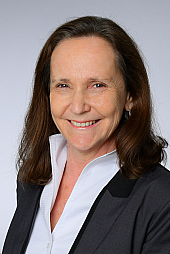- Startseite
- Forschung
- Arbeitsgruppen & Labore
- Translational Immune-Oncology
- AG Ambulante Infektiologie
- AG Angewandte Ethik in der translationalen Krebsforschung
- AG Evidenzbasierte Medizin
- AG Intravaskuläre Infektionen und Knocheninfektionen
- AG Klinische Antiinfektiva-Entwicklung und Epidemiologie seltener Infektionen
- AG Klinische Mikrobiomforschung
- AG Kohorten in der Infektionsforschung
- AG Onkologische Bewegungsmedizin
- AG Psychoonkologische Versorgungsforschung
- AG Translationale Tumorgenetik und Immuntherapie
- CLL-Biobank
- Computational Biomedicine & Bioinformatics Group
- Gastrointestinal Cancer Group Cologne
- Krebstherapie und Molekulare Bildgebung
- Labor für antivirale Immunität
- Labor für flüssige Onkogenomik
- Labor für funktionelle Genomik in lymphoiden Neoplasien
- Labor für lymphozytäres Signaling und Onkoproteom
- Labor für Mikromilieu und Therapie Maligner Lymphome
- Labor für molekulare Hämatologie und Onkologie
- Labor für molekulare Immunologie
- Labor für molekulare Pathogenese der CLL
- Labor für präklinische Arzneimittel-Testung
- Labor für translationale Immunmodulation in der Krebstherapie
- Labor für Tumorgenetik und Zellbiologie
- Translational Immune-Oncology
- Translationale Krebsforschungsgruppe
- Translational Research Unit – Infectious Diseases
- Nachwuchsprogramme in der Onkologischen Forschung
- HEnRY
Institute for Translational Immune-Oncology
Our mission is to make immunotherapies more effective and available to patients in need.
We are currently looking for PostDocs, PhD students, master students, medical students and technical assistants.
Please send enquiries to im1-ag-stripecke@uk-koeln.de
Research
The Translational Immune-Oncology develops and validates immunotherapies against leukemia, lymphoma and chronic herpes viruses for clinical uses:
Engineered T Cells
T cells are cells of the immune system that have the capacity to recognize antigens, produce inflammatory molecules, kill targets and maintain a long-term immunologic memory. We are engineering chimeric antigen receptor T cells (CAR T cells) that kill lymphoma cells and cells infected with Epstein-Barr Virus (EBV). The CRISPR / Cas9 gene editing technique is currently being used to make CAR T cells more effective, safer and more widely available for patients. These gene-edited CAR T cells are currently being tested pre-clinically in vitro and in vivo. The clinical development of CAR-T cells against lymphomas will follow as a cooperation with several clinicians at the University Hospital Cologne and biotech companies.
Engineered Dendritic Cells
Dendritic cells (DCs) are the professional antigen presenting cells of our immune system. Upon cancer and chronic infections, the function of DCs is affected and T cells are poorly activated. We developed tools to engineer DC precursors, so that they can be readily produced in clinical grade quality for infusion into patients with leukemia and other hematologic cancers.
Advanced mouse models for basic research and preclinical testing
Along with our cell engineering activities, we develop mouse models with implanted human cells. These models can sustain the development of a human immune system for several months. Thus, this opens a broad perspective to study the human immune system in vivo. For example, we use these models to understand the effects of herpes viruses (EBV and HCMV) in the immune responses. In addition, mice implanted with different types of human cells are being in development, so that we can merge the human immune system and the cancer in a single model. These models are in the forefront for testing the potency and safety of immunotherapeutic products, prior to their testing in patients.
Ongoing Collaborations at the University Hospital Cologne
Prof. Christof Scheid (GMP training and validation of CAR-T cells)
Prof. Florian Klein (Humanized mouse models)
Prof. Christian Pallasch (Dendritic cells and macrophages in humanized mice)
Dr. Sabine Awerkiew (EBV and lymphoma)
Dr. Hien Nguyen (Collaborator CMMC Research Project A 09 - Understanding the multifaceted regulation of T cell immunity in B cell lymphoma for improved immunotherapy)
Team
Scientific Manager
Milita Dargužytė, PhD (Advanced mouse models)
Natascha Ellen Stumpf, MSc (Gene edited CAR-T cells)
Fawad Khan, MSc (Humanized mouse models)
Postdoc
Masudur Rahman, PhD (Advanced mouse models)
Technical Assistant
Celina Faßbender
PhD Students
Jan-Malte Kleid, MSc (Gene edited CAR-T cells)
Michael Damrat, MSc (Gene edited CAR-T cells)
Administrative Manager
Ditte Schröder
Administrative Research Assistent
Franziska von den Steinen
Internship
Niklas Schlensog, Master student


